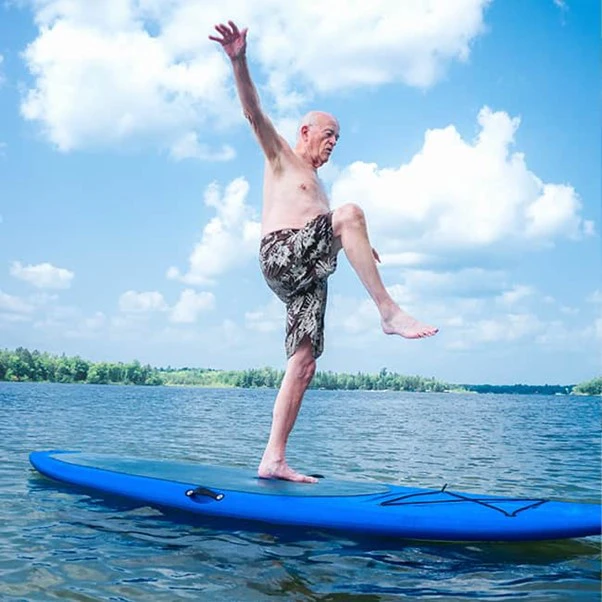Healthy Aging Research in Nelson Tasman
Healthy Aging in Nelson Tasman

Healthy ageing focuses on maintaining mental and physical health and avoiding disease so that you can maintain independence and quality of life in Nelson Tasman. Some of the challenges of getting older include memory loss and difficulty in carrying out tasks of daily living such as dressing, bathing, or cooking.
Due to the decline in nervous system function that often accompanies ageing, many older people also experience an increased rate of falls. 1 And although getting old may appear like an inevitable downward progression, there is actually something you can do about it – it’s called healthy ageing.

Invest in your Health
Healthy ageing can feel like a big investment in your health, but the returns are rewarding and can restore some control over your health and life. Chiropractic care can support older people with healthy ageing by helping them maintain and improve their overall function. 2 3
Why try Nelson Tasman Chiropractic?
Many research studies have shown that chiropractic care helps the brain become more accurately aware of what is going on inside your body and the world around you. 2 4 This is probably why older adults who receive chiropractic care maintain their ability to carry out their activities of daily living, maintain their ability to live independently and look after themselves. 3
Chiropractic may help prevent falls in older people
A recent study focused on whether chiropractic care may help older adults improve their function in a way that could decrease their risk of falling. 2 This randomised controlled trial compared 12 weeks of chiropractic care to a usual care control in 60 older adults.
After 12 weeks the group who received chiropractic care had become better able to know where their ankle joint was when they closed their eyes. They were able to take a step much faster than the control group, they could simultaneously process visual and auditory information more accurately in their brains, and they also felt better than the control group after 12 weeks of chiropractic care. This means they were better able to control and move their bodies in response to potential hazards which may reduce their risk of falling. On top of that they felt that their quality of life had improved after the chiropractic care as well.

What is Functional Ability?
Functional ability refers to a person’s ability to carry out basic tasks of everyday life. 5 These can be divided into basic activities of daily living, which include bathing, dressing, eating, grooming, transferring, and walking across the room; and instrumental activities of daily living, which include taking medications, using the phone, handling finances, housekeeping, cooking, shopping, and using transportation. 1 Due to an age-related decline in physical and cognitive function for many people it can become difficult to carry out these tasks as they get older. 3 Slowing the rate of functional decline in older adults preserves their autonomy and well-being and reduces the threat of institutionalisation. 3 This is very important for older adults because a loss of independence and functional decline are often associated with frailty and ultimately hospitalisation and mortality. 6 Researchers have compared the effects of chiropractic care to standard medical care on health outcomes in over 1,000 older adults with back conditions over a two year period. 3 They measured their general health status and tracked their ability to carry out their activities of daily living like bathing, shopping, and cooking. The people who received chiropractic care maintained their ability to carry out their activities of daily living and self-rated health status over a two year period compared to the people who received medical care. 3 This means that the chiropractic group maintained their ability to live independently and maintained their health instead of it declining as it did in the medical group. So the chiropractic group were healthier and better able to look after themselves at the end of the study period.
This may mean that chiropractic care for older adults will result in fewer drugs and less medical intervention and its associated adverse effects.

Keep in mind it’s possible that the people who chose to see chiropractors were fundamentally different to those who didn’t and it’s also possible that other factors, besides the chiropractic care, influenced health outcomes between assessments. Research also suggests that patients managed by chiropractors compared to those managed medically take fewer drugs, require less surgery, and are less likely to be hospitalised. 7
In a study published in 2007 7 researchers compared seven years of health claims from chiropractors to a similar group of health claims from medical doctors. What they found was a 60% decrease in hospital admissions, 62% decrease in outpatient surgery and procedures, and an 85% reduction in pharmaceutical costs for the patients managed by chiropractors compared to the conventional medicine. This may mean that chiropractic care for older adults results in fewer drugs, less medical intervention and its associated adverse effects.
The research reviewed in this article suggests that chiropractic care slows the decline in functional ability associated with ageing, 3 which may reduce the need for potentially harmful medical interventions and drugs. 7 It also suggests that chiropractic care enhances sensorimotor function associated with falls risk. 2 Chiropractic care can help older people to be more active, more independent, more healthy, and to feel better. 2
For some older people chiropractic care can truly give them their life back!
Read more on this topic here.
References
- Tinetti & Kumar. JAMA 2010;303(3):258-66. doi: 10.1001/jama.2009.2024
- Holt, et al. Effectiveness of Chiropractic Care to Improve Sensorimotor Function Associated With Falls Risk in Older People JMPT 2016 doi: 10.1016/j.jmpt.2016.02.003
- Weigel, et al. JMPT 2014;37(3):143- 54. doi: 10.1016/j.jmpt.2013.12.009
- Haavik & Murphy. JMPT. Feb 2011;34(2):88-97.
- Wiener, et al. J Gerontol 1990;45(6):S229-37.
- Milte & Crotty. Best Pract Res Clin Rheumatol 2014;28(3):395-410. doi: 10.1016/j.berh.2014.07.005
- Sarnat, et al. JMPT 2007;30(4):263-9. doi: 10.1016/j.jmpt.2007.03.004
Acknowledgements
- Dr. Heidi Haavik – BSc(Physiol) BSc(Chiro) PhD
- Dr. Kelly Holt – BSc, BSc(Chiro), PGDipHSc, PhD
- Dr. Jenna Duehr – BChiro, BHSC (Nursing), MHSc
Monday
2:00pm - 6:30pm
Tuesday
8:00am - 11:30am
2:00pm - 6:30pm
Wednesday
8:00am - 11:30am
2:00pm - 6:30pm
Thursday
8:00am - 11:30am
Friday
Closed
Saturday & Sunday
Closed
Connected Chiropractic
13/643 Rocks Road
Moana, Nelson 7011



